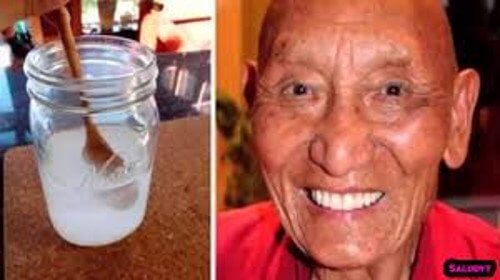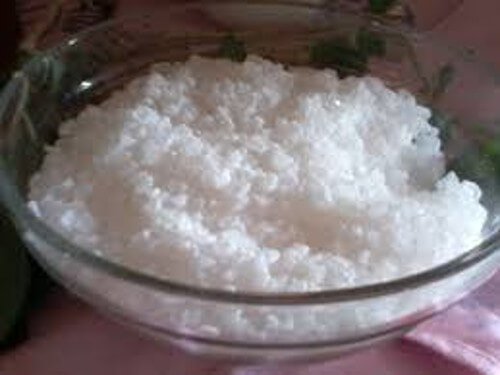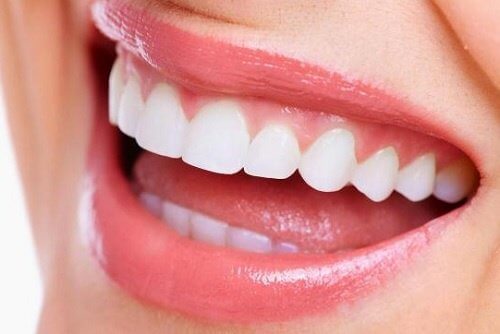The Secret Reason Why Tibetan Monks Have White Teeth

Have you ever wondered why Tibetan monks have such strong, white teeth?
Tibetan monks are known for their isolation from the material world to better immerse themselves in the spiritual one.
Everyone knows that the practitioners of this religion live far from cities with no supermarkets in walking distance, and they don’t see a dentist on a regular basis.
So how can you explain the fact that monks are some of the healthiest when it comes to having strong, white teeth?
Those of us in the Western world will never have white teeth like the monks’ without investing in specialized treatments such as toothpastes, whitening creams, and gels. Even still, some people never attain it.
In this article, we’ll tell you the secret to white teeth.
A Legendary Recipe for Whiter Teeth
Monks may not have stores, but they do have natural remedies that help them care for their bodies as their religion dictates.
Based on their excellent results, today we want to share a recipe for making a traditional, homemade toothpaste with proven efficacy.
Read Also: 5 Natural Teeth Whiteners

What will you need to use?
First, you’re going to need Kosher, or iodine-free salt.
This is a pure type of salt that Jewish people traditionally use to season their foods and preserve them longer. You can find it in health food stores or pharmacies.
Then, all you need is water!
As you can see, you need very few items, so you won’t find it difficult to make this treatment. Read on to learn the steps.
Quantities
- 1/2 cup of water (100 ml)
- 1 tablespoon of kosher salt (15 g)
Preparation
- Boil the half cup of water and let it cool until it reaches a suitable temperature.
- Add the tablespoon of kosher salt.
- Then, let it sit for at least one minute.
- Skim off any foam that remains on the surface.
How to Apply It
You’ll be able to see the crystals of salt in your mixture. They’re the key to this particular toothpaste, but first let’s find out how you should use it:
- Add the crystals to your toothbrush.
- Brush your teeth using your usual method, and don’t forget to use a circular motion to ensure the crystals reach all the crevices.
- Rinse with the same solution of water and salt.
- Repeat this three times a day.
As you can see, this is a simple and inexpensive process that will hardly take more than an extra minute of your time.
If you’re dining away from home and want to be fastidious, you can bring this mixture along with you in your bag. You only need a small amount so it’s very little trouble – and the benefits are amazing.
Other Tips for Healthy Teeth

Tibetan monks have other habits that complement this fantastic recipe.
For starters, they don’t smoke or drink alcohol. They consider these substances a poison.
Visit this article: Tips to Control Bad Breath
You may not agree, but the fact is that avoiding these products prevents stains and wear on your teeth.
Similar to this, they avoid consuming sugars, commercial desserts, or fatty foods, all of which keep them ahead of the game when it comes to white teeth.
Almost all of the foods we eat today contain these elements, in addition to artificial colors that make it even harder to reach our goals.
Instead, they eat a diet that’s rich in vegetables and organic products. They’re less abrasive because they contain fewer bacteria and germs. In addition to that, they don’t contain any chemicals that can attack tooth enamel and cause cavities.
Give it a Try!
Overall, this is an age-old recipe from an ancient culture whose members enjoy long and healthy lives.
This homemade toothpaste is harmless, but if you find that it doesn’t work for you, feel free to stop using it at any time.
Still, it’s worth giving it a try. Are you ready to let us know how it goes?
We’re always happy to hear from you.
All cited sources were thoroughly reviewed by our team to ensure their quality, reliability, currency, and validity. The bibliography of this article was considered reliable and of academic or scientific accuracy.
- Mayo Clinic Staff. (2013). Oral health: Brush up on dental care basics.
mayoclinic.org/healthy-lifestyle/adult-health/in-depth/dental/art-20045536 - Seal out tooth decay. (2012).
nidcr.nih.gov/OralHealth/Topics/ToothDecay/SealOutToothDecay.htm - Taking care of your teeth and mouth. (2015).
nia.nih.gov/health/taking-care-your-teeth-and-mouth
This text is provided for informational purposes only and does not replace consultation with a professional. If in doubt, consult your specialist.








